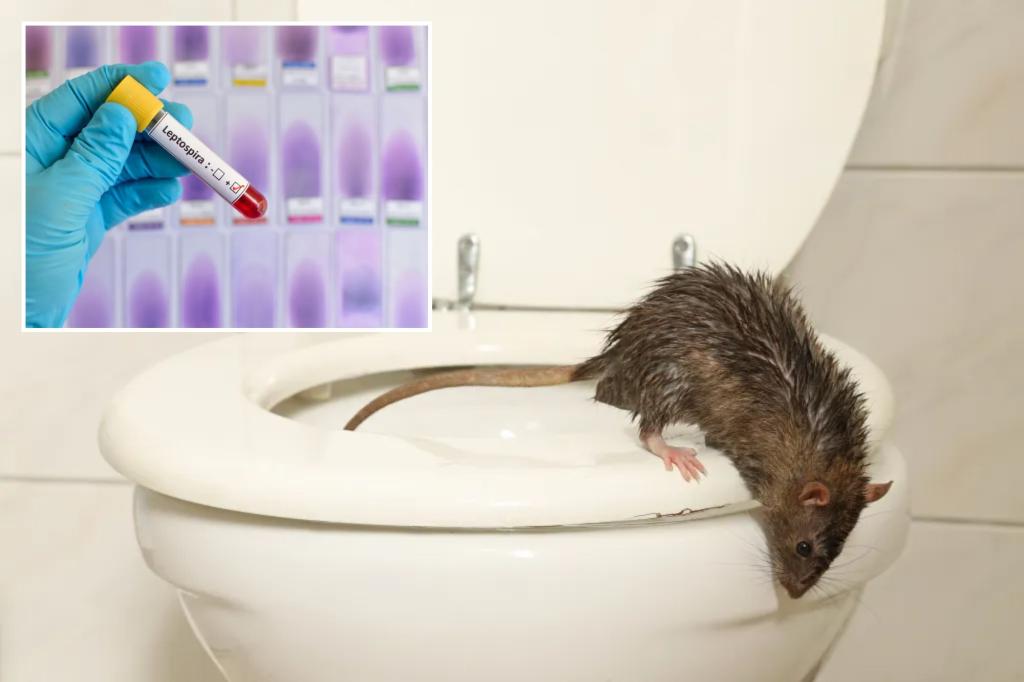A 76-year-old Canadian man suffered from organ failure and sepsis after being bitten by a rat while trying to fish it out of his toilet. Initially receiving basic wound care and a tetanus booster, he went to the emergency room 18 days later with symptoms of fever, headaches, and abdominal pain. Doctors discovered he had leptospirosis, a bacterial infection transmitted by animals such as rats. Despite his multi-organ dysfunction and sepsis, the man was treated with antibiotics and steroids and was released from the ICU after three days.
Leptospirosis is a bacterial infection found in the urine of animals and can be fatal in severe cases. In this particular incident, doctors suspect that the rat that bit the Canadian man may have had contaminated urine in its mouth, allowing the bacteria to enter his body through the broken skin. Worldwide, there are over one million reported cases of leptospirosis each year, with mortality rates ranging from 5-15%. The man’s deteriorating condition after the rat bite highlights the seriousness of this bacterial infection and the importance of prompt medical attention and treatment.
The man’s situation was exacerbated by the fact that the rat that bit him was carrying the bacteria responsible for leptospirosis. This is often the case with rodents like rats, who can transmit the infection through their urine. Doctors believe that in this instance, the contaminated urine from the rat caused the man’s condition to worsen, leading to his organ failure and sepsis. The severity of his symptoms prompted him to seek medical treatment, ultimately leading to the diagnosis of leptospirosis and the appropriate course of action.
As the man’s health continued to decline, his symptoms of fever, headaches, and abdominal pain became increasingly severe, leading to his hospitalization in the ICU. The bacterial infection had taken its toll on his body, affecting his heart rate, blood pressure, and kidney function. Doctors had to act quickly to treat his condition and prevent further damage to his organs. The combination of antibiotics and steroids proved to be effective in combating the infection and promoting his recovery.
Overall, this incident serves as a reminder of the dangers associated with bacterial infections like leptospirosis, particularly when transmitted by animals like rats. Proper wound care and medical attention are essential in cases where individuals are exposed to potential sources of infection. The man’s experience highlights the importance of seeking prompt medical treatment when dealing with injuries caused by wild animals or unexpected encounters that may lead to bacterial infections. By raising awareness of these risks and emphasizing the significance of early intervention, incidents like this can be prevented or effectively managed to ensure the best possible outcome for those affected.


